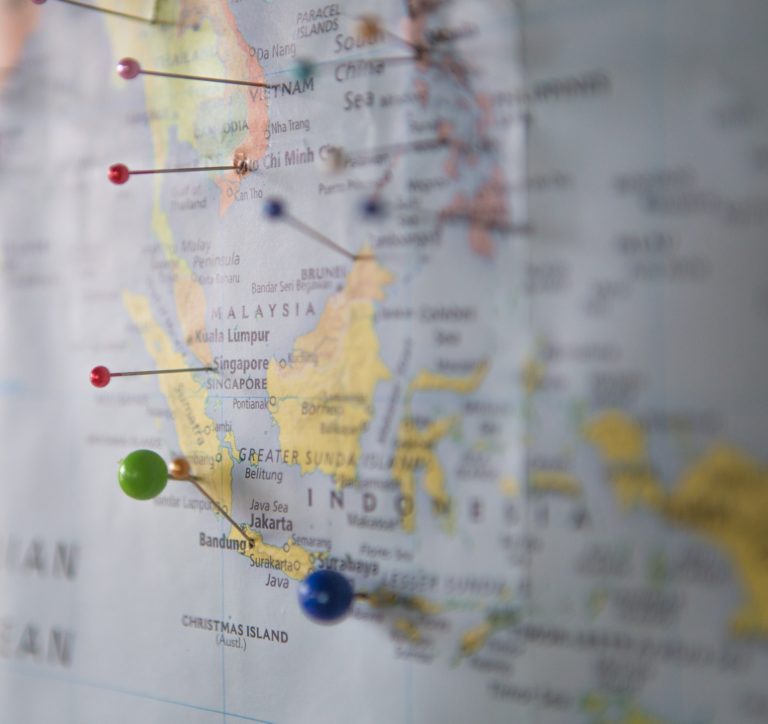Certified translations
Comprehensive service from a single source!
Certified translations by certified court interpreters in Austria
We are happy to support you with a full range of services: from offering advice about your certified translation all the way through to dealing with the authorities. Choose us for a relaxed experience: your document is in safe hands at our translation agency – your certified translation will be delivered right on time. Thanks to our sophisticated quality assurance process, you will be left in no doubt about the quality of our work.
Quote request
Receive a non-binding price calculation within just one hour!
Certified translation: What is it exactly?
A certified translation is a true copy of the original. To be legally valid, it is stamped and affixed with a certification statement by the translator. In this statement, the sworn translator confirms that the translation is a true and accurate representation of the original.
The translation is bound together with your original document so that they form a single entity, and the original wording can be viewed at any time.
This kind of translation is usually required when you are asked to present foreign-language documents to the authorities or official bodies.
Examples of certified translations
- Commercial register
- Contracts
- Notarial acts
- Annual reports
- Official letters
- Registration cards
- Birth certificates
- Marriage certificates
- Letters of reference
- Diplomas or degree certificates
Our quality pledge
Court certified translators
Following the official channels
Seal and certification statement
Internal quality assurance
So what exactly does the certified translation process entail?
Submit the source documents
You send us a scan/copy of your source document, or bring it in to us personally. At this point, you must let us know why you need the document, which target country it is for, and which language you require.
Information about the process
Our project managers will explain the process and any steps that might be necessary in your particular case.
Certified translation
The certified translation is carried out by a court interpreter sworn in Austria.
Checked by project manager
The finished certified translation is then checked by one of our project managers to make sure that it is complete and that it meets the specific project requirements.
Official channels (if required)
If necessary or desired, we can follow any necessary official channels so that your certified translation is valid not only in Austria but also in your target country.
Whatever your document, whichever language you require, wherever you are: our professional court interpreters in Vienna, Graz, Linz and indeed all over Austria are happy to help.
If you have any further questions, feel free to contact us at any time. Our qualified project managers look forward to hearing from you!

Where is a certified translation valid?

We can offer you certified translations in all languages and specialist areas, which you can trust to be legally valid in Austria.
To ensure that your certified translations are also recognized by authorities abroad, a few further steps may be necessary depending on the destination country, the purpose of the document, and the type of document. Simply send us your document and let us know why you need a certified translation and which country you need it for: we will be pleased to explain the requirements. Whether it’s a diplomatic certification or a certification in accordance with the Hague Convention, we will carefully walk you through each step and take care of the translation. You won’t have to worry about legalisations, prior certification, supplementary authentication or apostilles.
Our project managers have many years of experience and will be happy to take the entire process off your hands: our translation agency provides you with a certified translation that is valid in the target country, so you can avoid getting bogged down in all the legal details. Leave it to us, and focus on the important things!
Legalisation and apostille: What do I need?
There are essentially two ways to ensure that your certified translation is valid not only in Austria but also accepted by the international legal community: legalisation or an apostille, depending on whether the destination country is party to the Hague Convention.
Legalisation, also called diplomatic authentication, is necessary when the target country is not a member of the Hague Convention. Legalisation comprises the following steps:

The regional court where the court interpreter has been sworn confirms the authenticity of the translator’s signature on the certified translation.
The Legalisation Office of the Federal Ministry for European and International Affairs confirms the authenticity of the document which has been certified by the regional court.
Only then can the state’s responsible representation authority, for which the certified translation is destined, complete the legalisation.
The other, simpler way to validate your certified translation internationally is to get an apostille. This channel is used when the country in which you must present your certified translation is a signatory state of the Hague Apostille Convention. In this case, an apostille is sufficient. In order to be issued an apostille for your certified translation, the following steps are necessary:

The regional court where the court interpreter has been sworn confirms the authenticity of the translator’s signature on the certified translation.
The regional court gives the document that has previously been certified an apostille for the respective destination state. As a result, the foreign representative authority no longer needs to legalise your document.
Navigating these official channels can sometimes be stressful, so we are only too pleased to handle all these steps on your behalf. We offer a comprehensive worry-free package, including our solid advice!
FAQs about certified translations
The requirements for a certified translation can vary widely. So, our project managers must first take a look at your document to find out what it is for, in order to then provide you with a bespoke quote. Simply send us your file and benefit from some free advice from our project managers!
Official and certified translations are simply synonyms. Read about what makes a certified translation here.
A notarisation or a notarial certification is not to be confused with a certified translation! Depending on the purpose, a notarised document may be necessary before obtaining the certified translation. This means that a notary certifies the original document or a copy of the original in order to verify the authenticity of said document. Only at this point is the certified translation carried out. The certified translation is bound with the notarised original.
As a comprehensive service provider, we can also get your document notarised before we have it translated. Simply send us your enquiry and we will be happy to advise you on whether a notarisation is necessary in your case.
Prior certification is a necessary intermediate step in the legalisation and apostillisation of certified translations for use abroad. Find out the requirements for legalisation and apostillisation, and let us take care of prior certification as well as all the other necessary steps, so that your certified translation is also valid abroad.
Supplementary authentication is a necessary interim step in the legalisation of certified translations, so that they are recognized by courts and authorities abroad. Learn here about the complete legalisation process, and let us handle the official processes needed to obtain supplementary authentication and any additional steps in the legalisation process.
Legalisation or diplomatic authentication is the process of authenticating original documents to be legally accepted by other countries. Legalisation is necessary to ensure that your certified translation is recognized abroad.
These are the necessary steps for legalising a certified translation:
- Prior certification: the regional court where the court interpreter has been sworn confirms the authenticity of the translator’s signature on the certified translation.
- Supplementary authentication: The Legalisation Office of the Federal Ministry for European and International Affairs confirms the authenticity of the document which has been certified by the regional court.
- Legalisation: Only then can the state’s responsible representation authority, for which the certified translation is destined, complete the legalisation.
Navigating these official channels can sometimes be stressful, so we are only too pleased to do it for you.
Apostillisation replaces legalisation when your certified translation is required in a country that is party to the Hague Apostille Convention.
These are the necessary steps for legalising a certified translation:
- Prior certification: the regional court where the court interpreter has been sworn confirms the authenticity of the translator’s signature on the certified translation.
- Apostille: The regional court gives the document that has previously been certified an apostille for the respective destination state. As a result, the foreign representative authority no longer needs to legalise your document.
We offer a comprehensive service, including our solid advice! You won’t have to worry about getting an apostille yourself.
Depending on the nature of the document, your certified translation can be bound together with the original document, a notarised copy, or an ordinary copy. In most cases, you are on the safe side with the original document. In some cases, however, special requirements apply. Please send us your document, and our project managers will happily take the time to provide you with some advice.
Often, the authorities or courts don’t need the entire document to be translated and certified: it may be that only certain passages require translation. Save yourself time and expense, and let us know what exactly needs to be translated and in what form. It may be that a simple translation is enough for certain parts of your document, or that these parts don’t even need translating in the first place. Let us help you optimize costs!
Whichever country you need a certified translation for, our translation agency can provide assistance in all languages. We cover popular target languages such as Spanish, French and Italian, as well as more uncommon requests such as Arabic, Serbian and Portuguese. We know no limits at Cruz Communications! We work with a broad network of sworn translators who can spring into action immediately. Our skilled project managers can make the impossible possible in the blink of an eye!
